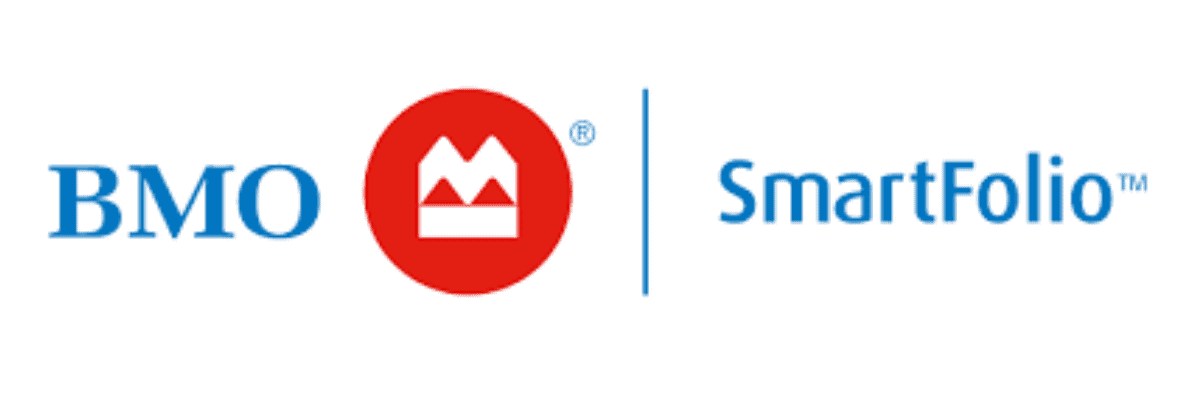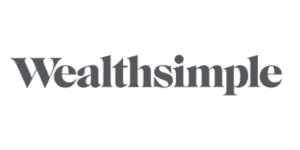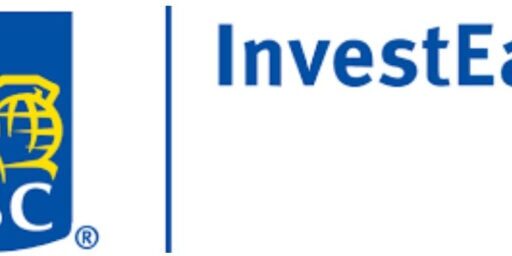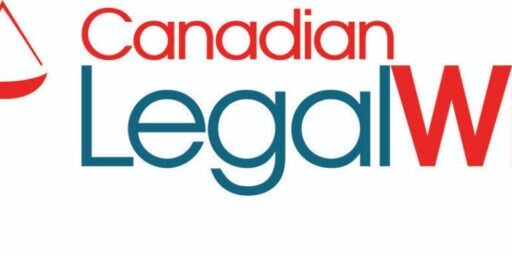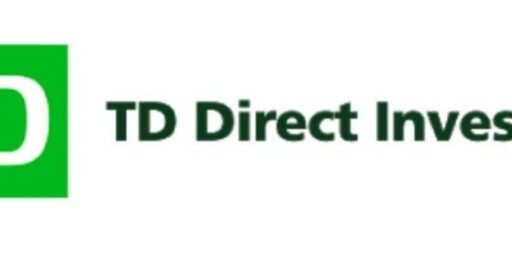Wealthsimple vs BMO in 2026
While a sleek fintech company like Wealthsimple might have a completely different background than a long-established institution like BMO, they are overlapping to a significant (and increasing) degree as we enter 2026. One built its reputation on simplicity and online design, the other on stability and tradition. But the rise of DIY investing has pushed both companies into similar territory. They now offer robo advisor options that appear in my Best Robo Advisors in Canada list, along with their online brokerage platforms.
You can see how both BMO Investorline and Wealthsimple Self-Directed Investing (formerly known as Wealthsimple Trade) stack up for full DIY investors by checking out my ranking of the Best Online Brokers in Canada.
Selecting which platform is right for you can feel overwhelming. Fees, features, portfolio construction, and ease of use all play a role, and the trade-offs are not always obvious. That is why we put together this robo advisor comparison of Wealthsimple Invest vs BMO Smartfolio, and Wealthsimple Trade versus BMO InvestorLine. The goal is to give you a straightforward look at how each option works and where each one shines.
By the end, you should have a solid sense of what each platform offers and which one fits your style of investing. If you want an even deeper dive, it is worth reading our Justwealth Review to see how the top-rated robo advisor in Canada builds the best-performing portfolios in the business, as well as our Qtrade Review to understand what separates the best brokerage platform from the rest of the field.
Wealthsimple Invest vs BMO Smartfolio: Quick Comparison Chart
While we recommend reading our Wealthsimple Review and our BMO Smartfolio Review for more context, we’ve summed up the important info here:
BMO SmartFolio | Wealthsimple Managed Investing | |
Management Fees |
|
|
MER | 0.2-0.35% | 0.12-0.15% For Standard ETFs |
Investment Options | BMO ETFs only | 13 ETFs (10 standard, 2 SRI, 1 Halal), a variety of top providers. |
SRI Options | ||
Minimum Investment | $1,000 | None |
Portfolio Options | 5 model portfolios | A choice of 9 portfolios (3 standard, 3 SRI, 3 Halal) |
Account Types | RRSP, Spousal RRSP, TFSA, RRIF, Spousal RRIF, RESP, unregistered | RRSP, Spousal RRSP, TFSA, LIRA, RRIF, LIF, RESP, unregistered |
Returns | 1.25% to 6.39% annualized growth | 1.96% to 5.54% annualized growth |
Safety | CIPF protection up to $1 million + Bank-level encryption | CIPF protection up to $1 million + Bank-level encryption |
Customer Service | Easy to access (human) advisors | Easy to access (human) advisors |
Additional Services |
|
|
Promo | None | $25 sign-up bonus |
Sign Up | ; | ; |
Wealthsimple vs BMO: Similar Service, (Very) Different Institutions
Wealthsimple is a Fintrac-registered money services business that was founded in 2014 with its robo-advisor service, Wealthsimple Invest, as its flagship product. It has since branched out into DIY investing with Wealthsimple Trade and cryptocurrency investing with Wealthsimple Crypto.
Even though it’s much newer, Wealthsimple still has over 3 million customers and over $70 billion in assets under administration. They offer a number of services in addition to their robo-advisor, including:
- Wealthsimple Spend (which functions like a bank account)
- Wealthsimple Tax (a tax filing platform)
- Wealthsimple Crypto (a crypto trading platform)
- Wealthsimple Trade (a discount online brokerage – more on this near the end of this article).
Compare that to BMO, which was the first bank in Canada (founded over 200 years ago) and has over $332 billion in assets under management.
BMO pioneered big bank robo-advisors when it launched Smartfolio in 2016. Other banks are gradually following, but so far the only other established robo is RBC Investease, which we featured in our Wealthsimple vs RBC comparison).
BMO prefers the term “online portfolio management” over “robo-advisor” because they focus heavily on human interaction. Their portfolios are actively managed by a team of Portfolio Managers and rely a bit less on computer algorithms than their competition.
From what we’ve seen, there’s no indication that the personal management aspect makes a huge difference in performance, but think of it as the big bank touch (one that you pay extra for).
Wealthsimple vs. BMO: Security
Both Wealthsimple and BMO Smartfolio are legit, regulated robo-advisors. Your accounts are held by custodial brokers which are members of the Canada Investor Protection Fund (CIPF) and regulated by the Investment Industry Regulatory Organization of Canada (IIROC).
Both take data security seriously. They use bank-level encryption and firewalls at every level. You can trust each company to protect your information as well as your money.
Wealthsimple vs. BMO: Annual Fees
One major difference between Wealthsimple Invest and BMO Smartfolio is the fee structure. BMO’s is a bit complicated, so we’re going to break it down with a real-life example so you can see what the pricing means for you.
BMO charges fees according to the following tiers:
- 0.7% for the first 100K
- 0.6% for the next 150K
- 0.5% for the next 250K
- 0.4% for over 500K
But it’s even more complicated than that because their fee structure is cumulative.
For example, if you have $250,000 to invest, your total fees look like this:
$100,000 x 0.7% = $700 + $150,000 x 0.6% = $900
$700 + $900 = $1600 to manage that $250,000.
Meanwhile, Wealthsimple charges a straight percentage of the account (0.5% for accounts under $100,000 or 0.4% for larger accounts). This sample $250,000 account would be charged a flat 0.4% fee.
$250,000 x 0.4% = $1,000. That’s a steep difference!
BMO is quick to point out that their fees are lower than a typical (1.75%) traditional investing fee – and that’s true, at 1.75% you’d be paying $4,375. But it’s still 60% more than you’d pay with Wealthsimple Invest, and in the case of our example, that’s $600 that could be going into your pocket (or back into your investment account).
Wealthsimple vs. BMO: MER
Any ETF has a management expense ratio – a management fee that is charged behind the scenes and is expressed as a percentage of the total investment. MERs can vary widely – and in the case of Wealthsimple Invest and BMO Smartfolio, they do!
Wealthsimple’s standard ETFs have an MER of 0.12-0.15%, which is extremely low compared to industry standards. The MERs for their socially responsible investment (SRI) ETFs range from 0.21-0.23%, while the MERs for their Halal ETFs range from 0.25-0.5%.
BMO’s MERs sit between 0.2% and 0.35% – on the high side of normal for ETF MERs in general, but about double Wealthsimple’s standard ETF MERs.
Wealthsimple vs BMO: Additional Fees
Wealthsimple Invest doesn’t charge transfer fees or withdrawal fees. In fact, if you transfer over $25,000
in investments to Wealthsimple, they’ll reimburse you for the incoming transfer fee. They do charge a foreign exchange fee, depending on the conversion amount, but that’s really it.
Meanwhile, BMO charges a host of additional fees including:
- Transfer-out of a Non-Registered or Registered Account (Full and partial) ($135)
- Partial withdrawal of a Registered Account (excluding TFSA and RRIF accounts) ($25)
- Full Deregistration of a Registered Account (excluding TFSA and RRIF accounts) ($100)
- Cheque requests ($10)
- Paper statement requests ($5)
- Foreign Currency Conversions (1.8%)
We’re not fans of fees for every little thing, so we consider this extensive menu of charges to be a point against BMO.
But we get it – BMO is a traditional bank, and this is what (many) banks do.
Wealthsimple vs. BMO: ETF Selection
Because Bank of Montreal is an ETF provider, it’s not a surprise that their Smartfolio service builds its portfolios out of BMO ETFs. They’re recognized as one of the top ETF providers, so this isn’t a terrible thing.
However, we question the tactic of limiting portfolios to a single ETF provider. There are many excellent ETFs available from other providers, including many of the Best Canadian All-in-One ETFs and Best Dividend ETFs in Canada.
A typical portfolio from Wealthsimple includes ETFs from Vanguard, iShares, and BMO, which gives them a much wider field of candidates to choose from. We’re not sure if this explains why BMO doesn’t offer socially responsible investment portfolio options…but we do think it’s important to point out that they don’t.
Wealthsimple has SRI options, but if you prefer a big bank experience, check out RBC Investease, which offers them as well.
Wealthsimple vs. BMO: Portfolio Options
BMO offers 5 basic portfolio templates from Capital Preservation (lowest risk) to Equity Growth (most aggressive). Smartfolio portfolios are managed by a team of Portfolio Managers and Credited Financial Analysts who monitor each portfolio daily.
Wealthsimple Invest has 3 basic portfolio templates: Conservative, Balanced, and Growth for their standard, SRI, and Halal portfolios. Within those 3 main types of portfolios, they adjust asset allocation based on a risk-tolerance scale of 1-10. Wealthsimple does have Portfolio Managers on staff, but the impression we get from their marketing is that the algorithms handle a certain amount of the day-to-day details.
We’re not saying that as a knock against Wealthsimple, for the record. They’re our most recommended robo-advisor, so clearly, we think they’re doing an excellent job. And management by algorithm is pretty much the point of robo-advising in the first place.
Wealthsimple vs BMO: Account Selection
Both Wealthsimple Invest and BMO Smartfolio offer the following account options:
- RRSP
- TFSA
- RRIF
- RESP
- FHSA
- Unregistered
Wealthsimple also offers spousal RRSPs, LIRA, and LIF accounts.
Wealthsimple vs BMO: Performance
When it comes to long-term results, portfolio construction matters. Asset allocation, rebalancing discipline, and the choice between active and passive building blocks can make a meaningful difference over time for robo advisors. That is why I pay a lot of attention to actual performance numbers – especially when big changes are made like the ones at Wealthsimple over the years.
Here’s the blunt truth: Wealthsimple’s has made some pretty bad decisions when it comes to how they build their portfolios, and it has cost their investors fairly significantly. Their portfolios used to be built almost entirely from low cost index ETFs, but they have steadily moved toward a mix that includes more factor-tilted strategies, themed ETFs, and proprietary funds. That shift has introduced tracking error and, in many cases, lower returns when compared to simple plain vanilla indexing. Their socially responsible portfolios in particular have noticeably lagged the market since 2021 due to concentration in a handful of underperforming sectors.
BMO Smartfolio, on the other hand, builds its portfolios using actively managed BMO ETFs. The result is a more traditional bank style portfolio that tends to trail market-cap weighted indexing over long stretches of time. BMO’s returns have not been disastrous, but they also have not been competitive with the best in class robo advisors that focus strictly on low cost global indexing.
When it comes to growth-oriented portfolios, Wealthsimple has fallen behind BMO over 3, 5, and 7 year periods. It is worth highlighting the fact that Justwealth has built a substantial and sustainable lead over other robo advisor contenders. If you care most about returns per unit of risk, Justwealth is still the standard to measure against.
Performance should not be the only factor you consider, but it absolutely deserves attention. A well constructed global index portfolio tends to outperform the majority of more complex or semi-active approaches over time.

Best 2026 Canadian Robo Advisor Promo:
Up To $500 in Cash
Open an account with Justwealth and get the best robo advisor promo offer in Canada*.
Justwealth has the best portfolio performance out of all Canadian robo advisors + the best promo offer. Get it by clicking the button below:
* Based on investment amount ** Applies only to New clients who open and fund a new account. *** Justwealth Review: more details.
Wealthsimple vs. BMO: Sign-up
Signing up for both Wealthsimple Invest and BMO Smartfolio is easy:
- You answer some questions to determine your investment goals, timeline, and risk tolerance
- You enter some basic personal information
- You fund your account.
If you want to add regularly to your account balance, both Wealthsimple Invest and BMO Smartfolio allow you to set up recurring auto-deposits.
Wealthsimple vs. BMO: Minimum Balance
Wealthsimple allows you to begin investing with as little as $1. BMO Smartfolio requires a minimum balance of $1,000.
This isn’t uncommon – other robo-advisors like Nest Wealth and ModernAdvisor have the same requirement. But it’s always nice when a company like Wealthsimple makes investing accessible to everyone, regardless of whether they have $1,000 in their account.
Wealthsimple vs. BMO: Perks
Part of Wealthsimple’s tiered pricing is tiered perks. Investors with over $100,000 in assets receive not only a discount but also features such as personalized financial planning and tax-loss harvesting. Investors with over $500,000 receive even more perks, including a personalized financial plan and 50% off health insurance for residents of Ontario.
BMO automatically has a certain prestige attached to the name… but they don’t offer any concrete perks to go with it.
You know how we feel about perks (we’re for them—unless they’re acting as a substitute for a quality robo-advising service).
Wealthsimple vs. BMO: Available Promotions
Wealthsimple Invest is offering our readers a welcome bonus: $50 cash if you open an account and invest $500.
Wealthsimple vs. BMO: Mobile App and Website
BMO Smartfolio doesn’t have a standalone app, but it does have a streamlined and intuitive online platform. It gives you all the information you need, from a bird’s eye view to details of one specific holding.
Wealthsimple Invest has its own app, which is also streamlined and easy to navigate. You can view your asset allocation, monitor your performance, and contact Wealthsimple’s investment team.
While both platforms are well-designed and intuitive, we do give extra props to Wealthsimple for adding a mobile app to an excellent browser-based platform.
Wealthsimple vs. BMO: Customer Service
Wealthsimple has a team of Portfolio Managers and Customer Support, and Business Development Representatives available by phone, email, or in-app during business hours every day. Likewise, BMO has a team of Smartfolio Advisors available by chat, phone, or email.
Both companies dedicate teams of real people to making sure you get the help you need. And that’s, frankly, priceless (although paying less is always good!).
Wealthsimple Trade vs. BMO InvestorLine: Self-directed Trading
Bank of Montreal and Wealthsimple both offer self-directed, DIY trading options as well as robo-advising. Wealthsimple Trade is one of the few no-fee platforms in Canada and BMO InvestorLine is known for its stellar customer service.
We’ve laid out the major features head to head for easy comparison:
| Wealthsimple Trade | BMO InvestorLine | |
| Investment Options | Stocks and ETFs only | Stocks, ETFs, Options, Mutual Funds, Bonds, GICs, Gold & Sliver |
| Free ETFs? | Free to buy and sell ALL ETFs | 80+ ETFs free to buy and sell |
| User Experience | Buggy web platform, app lacks resources, customer service is almost nonexistent | Very good platform, second only to Qtrade, solid customer service |
| Account Fees | None | $25/Quarter (unless your balance is over $25,000) |
| Trading Fees | None | $9.95/trade (except listed free ETFs) |
| Safety | CIPF member, IIROC regulated, encrypted | CIPF member, IIROC regulated, encrypted |
| Full Review | Wealthsimple Trade Review | BMO InvestorLine Review |
While we love Wealthsimple Invest, we frankly find Wealthsimple Trade underwhelming. It’s free to use, but they make their profit by selling data and skimping on customer service. We also don’t love the buggy platform. And while BMO is more functional and has more variety, they charge you a quarterly fee, plus $9.95 for most trades. Neither is ideal.
If DIY investing is more your scene, we recommend looking at Qtrade or Questrade instead of either BMO or Wealthsimple. They’re more functional and have better customer service than Wealthsimple while providing better value than BMO.
Wealthsimple or BMO? Frequently Asked Questions
Wealthsimple vs BMO vs Canada’s Top Platforms
While Wealthsimple is Canada’s largest robo advisor and BMO was the first of the big banks to launch one, I would not put either platform at the top of the 2026 robo advisor rankings. They are perfectly safe places to keep your money, and both institutions take security and fraud protection seriously, but that alone does not make them the best option.
If you read our Justwealth Review, you will see just how wide the performance gap has become between my number one choice and the rest of the field. Justwealth has also rolled out an excellent promo offer that makes the comparison even more lopsided.
Their DIY online brokerage platforms land in a similar spot. Wealthsimple Trade and BMO InvestorLine can absolutely handle the basics, but they sit below the leader when you look at fees, features, and long-term innovation. If you want to see how the top platform separates itself, take a look at my Qtrade Review for the latest offers and a breakdown of why Qtrade continues to rank #1 in Canada.
All that said, there is real value in choosing a platform you will actually use. If keeping your accounts under one roof gives you peace of mind then BMO Smartfolio or BMO InvestorLine are far better investment options than not starting at all. And if Wealthsimple’s clean interface is what motivates you to make those monthly RRSP or TFSA contributions, then sign up, get invested, and refine things as you go.
Too many Canadians get stuck obsessing over tiny differences and end up doing nothing. In the BMO vs Wealthsimple matchup, the right choice is simply the one you are most likely to stick with. Consistency beats procrastination-due-to-perfection every single time.

